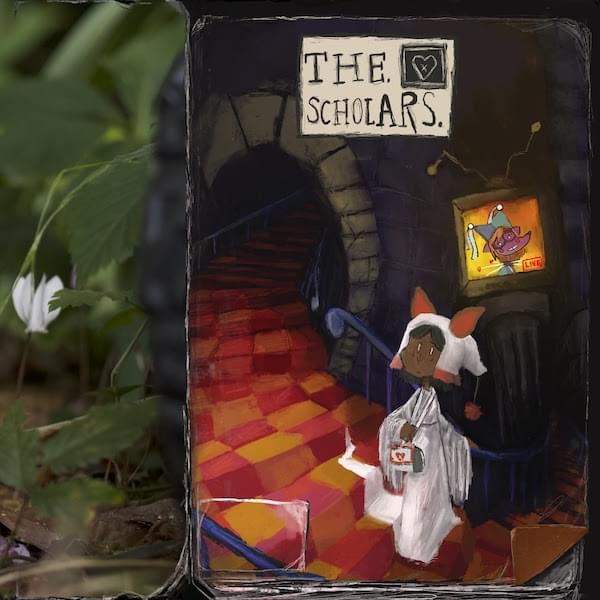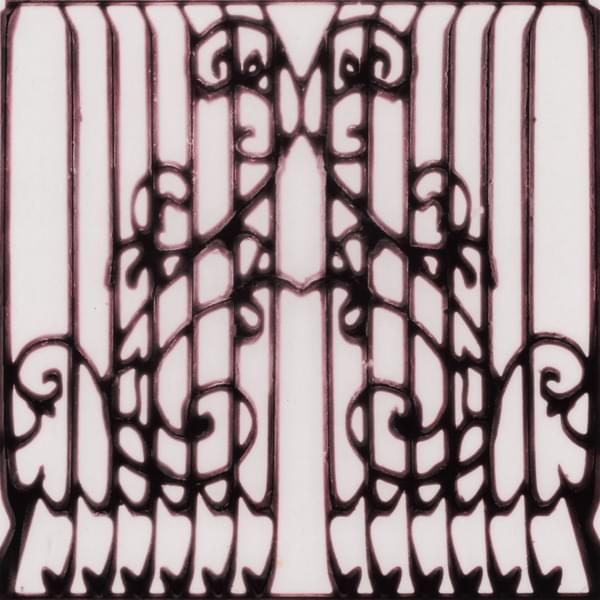
TLOBF Interview // Bellowhead
Bellowhead are huge. They’re not international superstars quite yet, but there are eleven of them. As they are about to release their impressive third album Hedonism, I launched some questions towards the band, which came back with answers from Pete Flood, the group’s drummer and percussionist. Recorded at Abbey Road studios with producer John Leckie (of Oasis, Radiohead and Rodrigo y Gabriela fame), Hedonism creates a number of talking points. Here follow the views of approximately 9% of Bellowhead on the famed live show, the choice of adapted traditional songs on the album, and how “essentially it’s all about shagging”. Fascinating stuff all round - read on.
How the devil are you?
Tickety boo, thanks.
Can you explain a bit about what is going on in the world of Bellowhead right now?
We’re releasing our third album, Hedonism, and training up for a UK tour in November.
“Hedonism” aptly describes a lot of the sounds on the album, but was the recording process similarly hectic or was it a calmer affair?
It was surprisingly calm and civilised by our standards. I mean, we worked 12 hour days at Abbey Road, but I wouldn’t call it hard workbecause we were all so misty eyed with the thrill of it that we would have happily slept there. And in the evenings, we repaired to ourlovely apartments up the road and drank a little wine and cooked for each other. The only time that any rock and roll excess crept into the equation was the day of the photo shoot for the album cover – we’d lured friends down to the pub where it took place with the offer of a free bar, but in the end I think we drank a lot of it ourselves before they arrived. Sorry friends!
Also on the subject of hedonism, your shows are quite spectacular and a lot of the critical discourse about Bellowhead as a projectseems to revolve around hoping that the records will capture or equal live performances. Is that something that you’ve aimed to achieve on Hedonism or are albums and live shows considered separate?
It’s been an ongoing frustration that, whilst we like our previous two albums, they don’t give a full sense of what we can do live. So we’d agreed to have one final crack at capturing the wild euphoria of our gigs before trying another approach. In a way, it’s a risky thing to commit to – you have to forget about many of the studio techniques that bands take for granted nowadays – large scale cutting and pasting, millions of overdubs, and copious use of auto tune for example – none of that works when my drums spill over everything in the room, including the vocals. Without putting too fine a point on it – people play live all the time after all – but it’s a little bit similar to the Dogme 95 manifesto in film making – a vow of chastity and abstention from all the little sonic lies we tell in the quest to sound ‘perfect’.
Our stars came into alignment when John Leckie got involved and decided to take us to Abbey Road – it was that point that we realised as a band that we could come away with something spectacular – so in the months leading up to the recording we ramped our rehearsal regime up a few notches, worked up about 20 contenders, all of which we played live and asked our audience for feedback. And of those 20, 11 made it on to the album. Obviously I’m far too close to it to have any kind of useful perspective, but this time I do think we’ve cracked it, which is doubly exciting, because it means not only that we’ve surpassed two critically feted previous albums, but that next time we can finally let loose with the T-Pain style auto tune frenzy that we’ve been wanting to do for so long!
There are some new sounds on this album. What prompted the inclusion of what sounds suspiciously like funk guitar on ‘The Hand Weaver and the Factory Maid’, for example?
Benji’s been fooling with that kind of stuff in the live shows for a while and we all really liked the way it pushes the track along and contrasts with the weirder pizzicato sections. It’s one of those sonic references like slap bass that divides people, because in the past it’s been over-used, but I always think there’s a case for their rehabilitation. It’s lucky we don’t have a bassist so I won’t have to practice what I preach there.
How did you go about the process of selecting the tunes to record this time around? They’re quite a diverse bunch, ‘New York Girls’ being an American sailing tune and ‘Broomfield Hill’ being an old English ballad, and so on…
Essentially it’s all about shagging. Or in the case of the more genteel songs, attempting to shag but being foiled by shrubbery, or annoying questions about birds, or drink. We worked up a lot of these numbers for a show we did last year, as Artists in Residence at the Southbank Centre, celebrating the rich vein of filth that enriches our traditional culture. There’s an embarrassment of riches to choose from, and it’s something of a disappointment that neither ‘Blinded with Shit’, or ‘The Enchanted Pisspot’ made it to the recording stage. But the challenge is always, how do you take this old, old material and make it relevant to present-day listeners? We have eleven different answers to that question in this band – but it essentially boils down to each arranger finding something in the source material that resonates with them individually, and the band trusting that initial vision enough to work at bringing it out – unfortunately puerile, scatological drivel isn’t the popular choice that I’d hoped! We’d already dealt with ripping off prostitutes in ‘London Town’, from Burlesque – so it made sense to do ‘New York Girls’ as it’s a re-telling of the story in which the whore gets the upper hand. And ‘Broomfield Hill’ makes a good choice as it brings a little calm to the proceedings, at least until all hell breaks loose halfway through.
As a band you seem quite drawn to songs with a darker undercurrent that isn’t always apparent at first – what draws you to songs like ‘Amsterdam’ or ‘Widow’s Curse’ from Matachin?
Personally, I love the dark stuff. ‘Widow’s Curse’ always got a lot of stick from within and without the band for being horrifically gruesome, but for me as the arranger it shows a side of human nature – the attraction we have to horror stories – that has remained unchanged over the centuries, and consequently it’s a story I can relate to far more easily than some ditty about a pre-industrial rural idyll that no longer exists. ‘Amsterdam’ may be couched in dark imagery, but I think it’s message is actually pretty uplifting – life may be a dirty, squalid business, but that’s no reason not to face it with arms open wide, and eat a few fish heads whilst you’re at it. For a long time I was obsessed with the video of Brel’s live performance of this song – the way he attacks the microphone and spits out the words more vehemently than most punks could manage make it one of the most compelling performances I’ve ever seen – you don’t cover one of his songs lightly.
How do you feel about the suggestion that Bellowhead represents “folk for the 21st century” and similar labels?
As a group, I think we’re happy enough with that. There’s such a wide range of opinions within the band about what, if anything, we represent that a nice loose title like that suits us fine. Being not from a folk background myself I tend to think of folk music as a convenient substrate, upon which my musical tendencies can act like an enzyme, or maybe some kind of fungus or mould. On the other hand, the folk-orientated members of the band might point out the distinction between traditional music and the fairly useless catch-all term ‘folk’, which can be applied equally to singer-songwriters, acoustic rockers and solo Hebridean fiddlers, and is used gratuitously whenever the music industry wants to make a distinction between their brand of soap and the one that everyone else washes with. So we have no party line, just a loose commitment to work mainly with traditional material from hereabouts, wherever that may be….
If people like Bellowhead’s approach to folk music and want to get deeper into that area, is there anywhere you would suggest they explore next?
Well, firstly I’d suggest that they buy every single one of our albums and make a practice of seeing us every time we come to their area –it’s not easy to make a band this size pay you know! On a compilation called Umbrellowhead, released last year, they’ll find music by all kinds of spin-off groups from the band – all of which are worth a look. As for the rest; if you like the fact that we’re big and boisterous, try the Demon Barbers or the Unusual Suspects; if you like our arrangements, bands like Lau or Spiro might do it for you too; and if you’re merely interested in the musical usage of household items like helicons and frying pans, forget about folk and check out Spike Jones and Fanfare Ciocarlia instead.
I saw and thoroughly enjoyed your set at Truck Festival this year. How would you sum up your festival experiences in 2010?
2010 had a hell of a lot to live up to, as we spent most of summer 2009 whooping it up in Canada, but it was surprisingly quite wonderful. We broke the Towersey Festival dance floor for the third time – that is to say that the audience broke it by the unholy power of their moshing. We played to 22,000 folk-rockers (surprisingly a different breed entirely from folkies) at Cropredy, and a field of hipsters at Truck, and by all accounts converted both groups. And the rest of the summer was a blur of Spiegeltents, big tops, good beer and great company. Roll on 2011!
Do you approach festivals differently to normal live shows in any way?
We approach every gig differently. Festivals sets are shorter, so we go out guns blazing and don’t let up till the end. Live shows are more about building to a frenzied climax over the course of 90 minutes than blowing our wad too early.
Looking beyond Hedonism, what do you think the future holds for Bellowhead?
Today’s music scene rewards mediocrity and punishes ambition. It’s a complex problem and it’s not for me to assign blame, but I do think that unless people start taking some risks again the early decades of the 21st century will be seen as something of a musical dead zone. We’re tiny, tiny fish, plankton even – but I feel very proud of what I see as our promotion of raw ambition over dull, plodding common sense – as long as we can prolong our commitment to anarchy and abandon I’m happy not to think too hard on the future – it’ll be a good long while before we find ourselves scraping the bottom of the Bellowhead barrel.
Get the Best Fit take on the week in music direct to your inbox every Friday

Blondshell
If You Asked For A Picture

Monolake
Gravity

Car Seat Headrest
The Scholars





